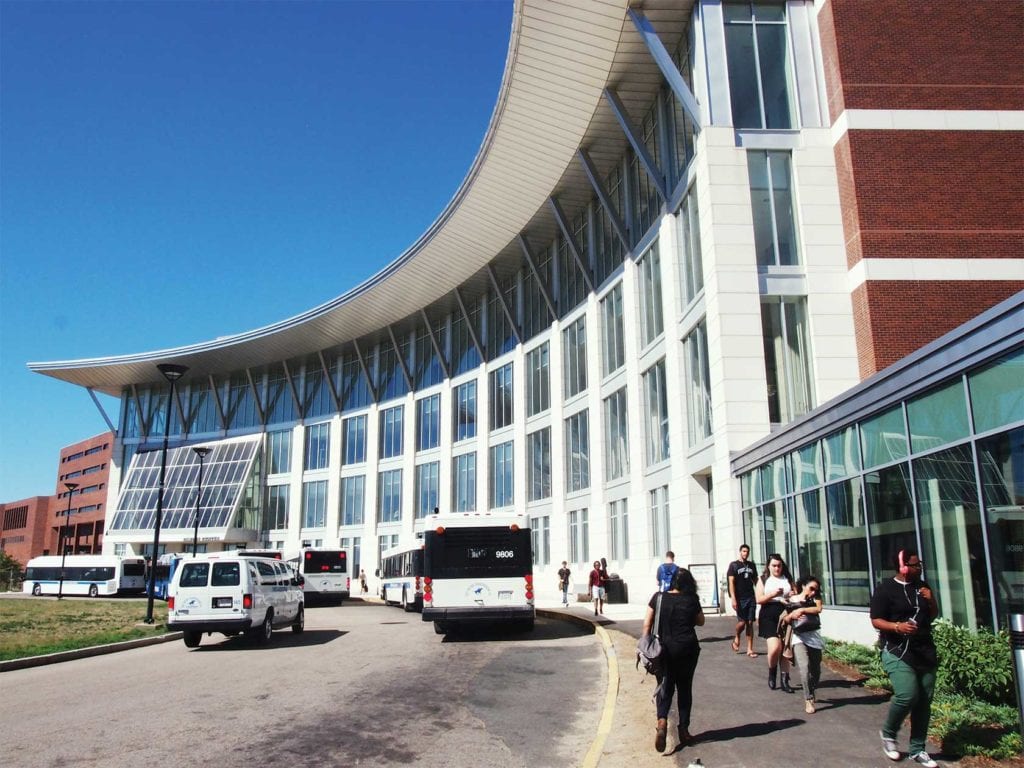
UMass Boston is seeking an interim director to lead the William Monroe Trotter Institute, following the retirement of long-time director Barbara Lewis. But the future of the Trotter and the other three ethnic institutes at UMass remains uncertain as the university remains committed to phasing out the institutes’ funding by as early as 2023.
In 2017, the university put the Trotter, the Mauricio Gaston Institute for Latino Community Development and Public Policy, the institute for Asian American Studies and the Institute for New England Native American Studies on what was termed “glide paths toward self-sufficiency,” meaning the university would zero out their budgets, along with those of 13 other UMass Boston institutes, by 2023.
“The university remains confident that by managing these reductions, and becoming and remaining financially self-sufficient, the research centers and institutes will be able not only to maintain their important research and community engagement but also to enhance it through attraction of a broader base of external funds,” UMass officials wrote in a report released Oct. 7 of this year.
While state Sen. Nick Collins inserted a line item in the fiscal year 2020 budget mandating the university maintain 2018 funding levels for the institutes, the University’s Oct. 7 report cites “extraordinary or unforeseen circumstances that require the reduction of budgets for UMB Centers and Institutes.”
In the report, UMB officials say the institutes’ functions are not core to the mission of the university, that nationally, most universities require self-sufficiency for institutes and that the UMass system has required UMB to have a balanced budget. University officials have argued that the 17 institutes cost UMB more than $5 million a year, a cost the multinational accounting firm KPMG concludes comes at the expense of UMB students.
“The KPMG audit … identified as a contributor to the UMB deficit that in FY16 the campus had spent $4.3M of tuition and state appropriation revenues to support centers and institutes,” the Oct. 7 report reads. “In fiscal year 2017, 17 of 54 centers and institutes on campus combined to produce over $5 million of the campus’s (at that time) $30M budget shortfall.”
The university’s four ethnic institutes are the only such public research institutes in Massachusetts. Their research covers black, Latino, Asian and Native American communities in urban, suburban and rural corners of Massachusetts, often providing statistics and analysis no other institutes study.
The Gaston Institute in May received a one-time $1 million grant from philanthropists Robert and Diane Hildreth, ensuring it will remain stable for the next two years. At the Trotter, the abrupt retirement of Barbara Lewis appears to have added to the uncertainty of its budget. University officials are reportedly seeking an interim director for the institute.
Africana Studies Senior Lecturer Tony Van Der Meer says the Trotter Institute has been an integral part of Boston’s black community since it was founded in 1984 and it now needs the community’s support.
“The community is a shareholder,” he said. “The Trotter is a public entity.”
Paul Watanabe, who heads the Asian American Institute, said the uncertainty around the Trotter and the fiscal year 2020 funding for all the institutes has created instability in their work. Currently, the institutes are working on a study of opinions on climate change in communities of color. The Trotter is charged with running focus groups for the study.
“The Trotter Institute’s work and future remain important,” he said. “It’s critical for us to know that someone will be there.”







